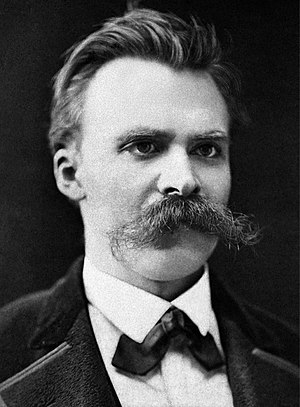
For art to exist, for any sort of aesthetic activity to exist, a certain physiological precondition is indispensable: intoxication.
Share this quote:
Sleeping is no mean art: for its sake one must stay awake all day.
Share this quote:
Art is the proper task of life.
Share this quote:
Love is blind friendship closes its eyes.
Share this quote:
A woman may very well form a friendship with a man, but for this to endure, it must be assisted by a little physical antipathy.
Share this quote:
Rejoicing in our joy, not suffering over our suffering, makes someone a friend.
Share this quote:
In large states public education will always be mediocre, for the same reason that in large kitchens the cooking is usually bad.
Share this quote:
There is more wisdom in your body than in your deepest philosophy.
Share this quote:
Does wisdom perhaps appear on the earth as a raven which is inspired by the smell of carrion?
Share this quote:
He who has a why to live can bear almost any how.
Share this quote:
When a hundred men stand together, each of them loses his mind and gets another one.
Share this quote:
Regarding life, the wisest men of all ages have judged alike: it is worthless.
Share this quote:
A great value of antiquity lies in the fact that its writings are the only ones that modern men still read with exactness.
Share this quote:
An artist has no home in Europe except in Paris.
Share this quote:
Perhaps I know best why it is man alone who laughs he alone suffers so deeply that he had to invent laughter.
Share this quote:
Nothing has been purchased more dearly than the little bit of reason and sense of freedom which now constitutes our pride.
Share this quote:
The future influences the present just as much as the past.
Share this quote:
All sciences are now under the obligation to prepare the ground for the future task of the philosopher, which is to solve the problem of value, to determine the true hierarchy of values.
Share this quote:
“A thinker sees his own actions as experiments and questions--as attempts to find out something. Success and failure are for him answers above all.”
Share this quote:
“Success has always been the greatest liar - and the work itself is a success; the great statesman, the conqueror, the discoverer is disguised by his creations, often beyond recognition; the work, whether of the artist or the philosopher, invents the man who has created it, who is supposed to have create it; great men, as they are venerated, are subsequent pieces of wretched minor fiction”
Share this quote: